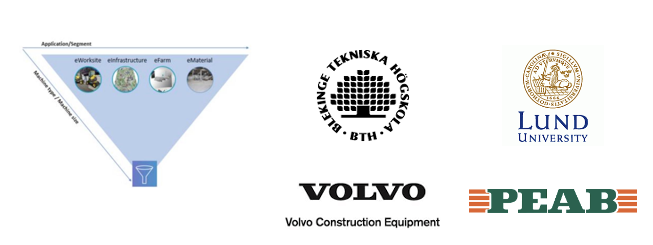
CONVERGE | 2023
- Post by: Tobias Larsson
- 2nd March 2023
- No Comment
CONVERGE – Solving the energy distribution in road construction
Sweden has committed to meeting the Paris Agreement by reducing greenhouse gas emissions to net zero in 2045. Transport in the construction industry, as a whole, uses 35% of global produced energy and annually releases 40% of carbon dioxide into the atmosphere. Today, approx. 6% of Sweden’s local emissions come from work machines, where construction alone accounts for almost half of the emissions. For contracts that are completed in 2030 or later, the Swedish Transport Administration aims that 100 percent of the total energy use for vehicles and work machines must consist of electricity from renewable energy sources or sustainable biofuels that are not subject to reduction obligations. This is a challenge as there is currently no system solution for energy distribution to and within the site to supply a machine fleet that has 1) a high degree of utilization and 2) can handle high loads, i.e. handle a large number of tons and with a larger machine size, approx. 30t. In order for larger clients, such as the Swedish Transport Administration, to be able to demand emission-free solutions, we must secure access to an attractive solution for the contractor. In order to accelerate the transition, it is of great importance that we, as strong actors in the entire value chain, show the way for what is possible.
CONVERGE collects the lessons learned in previous and ongoing electrification projects with the ambition of leading to a large demonstration project that handles identified challenges for larger infrastructure projects. The overall goal is to create a system solution for the use and transfer of electrical energy to a fleet of machines through the development and demonstration of an exchange system for batteries in several machines, so-called Battery Swap.
Project info
BTH project leader: Professor Tobias Larsson
Time span: 20230301 – 20230831
Funding: 0.7 MSEK (VINNOVA FFI Accelerera omställningen till hållbara vägtransporter)
Partners:
- BTH
- Lund University
- Peab Anläggning AB
- Volvo Construction Equipment
